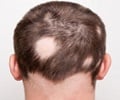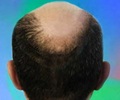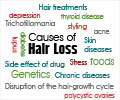Hair loss treatments may be on the horizon! Discover how the MCL-1 protein plays a vital role in hair follicle protection and regrowth.
- The MCL-1 protein is essential for hair follicle stem cell survival and regrowth, preventing excessive cell death
- Blocking MCL-1 in mice led to hair loss, suggesting its potential role in treating alopecia and baldness
- While promising, further human studies are needed before MCL-1-based treatments can be developed
MCL-1 safeguards activated hair follicle stem cells to enable adult hair regeneration
Go to source). Researchers led by a team from the Walter and Eliza Hall Institute of Medical Research in Australia and the Duke-NUS Medical School in Singapore discovered that mice who had their MCL-1 production inhibited lost their hair later in life.
Hair follicles follow a strict cycle of growth and rest. MCL-1 acts like an "alarm clock" that wakes them up to start growing again! #hairscience #mcl1 #hairregeneration #medindia’
Link Between MCL-1 Protein and Hair Growth
MCL-1 is essential for the growth phase of the cycles of quiescence and growth that occur in hair follicles. However, neither the initial growth of hair follicles nor their resting phase appear to be impacted by the protein."Acute MCL‑1 deletion rapidly depletes activated hair follicle stem cells and completely blocks depilation‑induced hair regeneration in adult mice, while quiescent hair follicle stem cells remain unaffected," said the study authors.
It was already established that MCL-1 was crucial in preventing apoptosis, which is the body's process of destroying damaged or superfluous cells, from occurring in a variety of tissue types.
In the case of hair, MCL-1 makes sure that follicle stem cells 'reawaken' from rest without being disturbed or harmed. These cells cease to function if MCL-1 is not there to protect them.
Novel Treatments for Hair Loss
The group also discovered new information about the role of MCL-1, including how it inhibits another protein called BAK and how the ERBB signaling pathway controls MCL-1. These specifics might be helpful in creating novel treatments for hair loss."These findings suggest that ERBB signaling modulates MCL‑1 expression through translational control mechanisms, particularly during periods of heightened apoptosis and regression in the hair cycle," the authors write.
The results must be confirmed in clinical studies on humans, even if there is excellent reason to believe that the same processes are occurring in our own brains because the study was only conducted on mice.
It's also important to keep in mind that there are other types of alopecia, each with a different set of contributing factors. Therefore, if treatments are ever created that concentrate on increasing MCL-1, they won't be effective for all types of hair loss.
Notwithstanding these drawbacks, the work of this single protein is a major discovery about the capacity of hair follicles to produce hair. Future research on additional processes impacted by MCL-1, such as cancer cell death, may benefit from the findings.
Molecular Mechanisms Underlying Hair Follicle Regeneration
"This study advances our understanding of the molecular mechanisms underlying hair follicle regeneration and offers new insights into how stem cell survival and tissue regeneration are orchestrated," the investigators said."These findings may have broader implications for controlling the survival of stem and progenitor cells in tissue regeneration and cancer expansion."
The study has been published in Nature Communications.
References:
- MCL‑1 safeguards activated hair follicle stem cells to enable adult hair regeneration - (https://www.nature.com/articles/s41467-025-58150-5)
Source-Medindia















